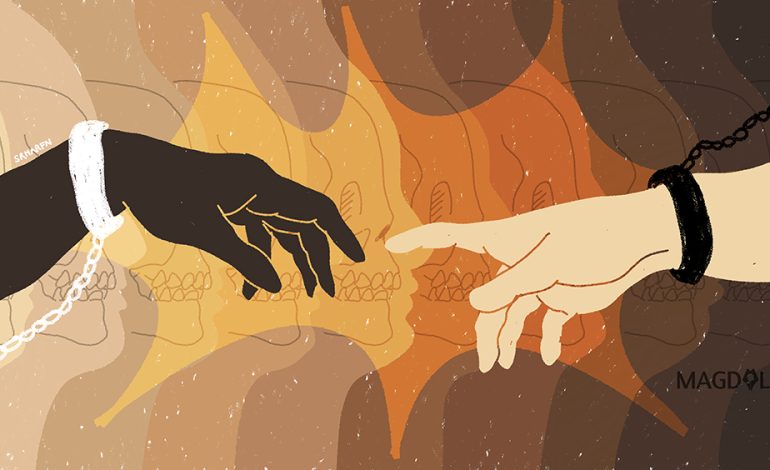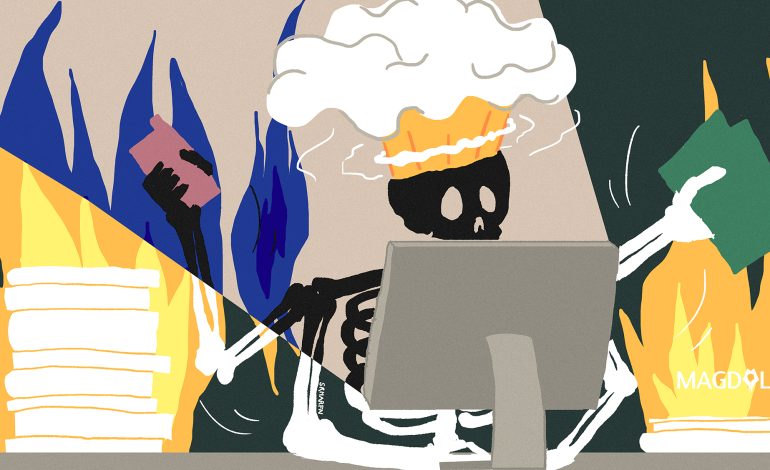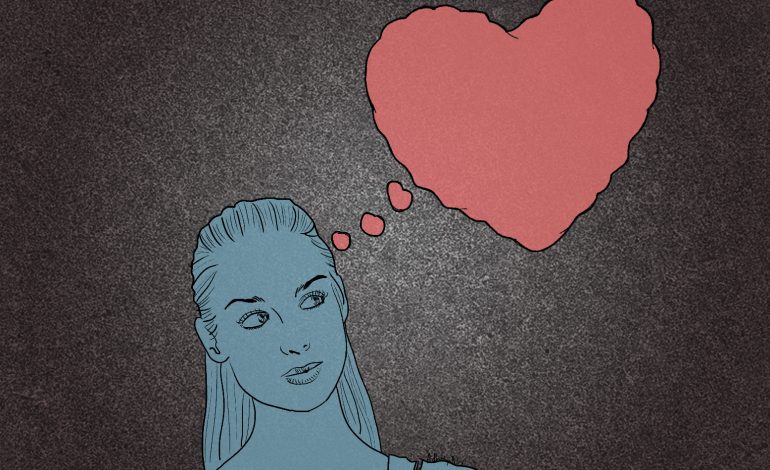How Masculinistic Approach of Militarism Has Muddled the Papua Issue

Recent tensions in Papua and West Papua provinces should make us take time to pause and ponder. In the past few months, about 6,000 Indonesian troops have been sent to the two provinces consisting of the Indonesian National Police and the Indonesian National Army. The troops are scattered throughout the provinces, including in Jayapura, Manokwari, Sorong, Paniai Deiyai, Nabire, and Fakfak.
Military deployment in Papua had been criticized by many. Some have said that military withdrawal can be the initial stage of resolving the endless conflicts in Papua. However, some have also questioned it. Former Indonesian Defense Minister Ryamizad Ryacudu said threats remain in Papua that requires TNI to stand guard in the region. Indonesian Democratic Party of Struggle politician Budiman Sudjatmiko argued that while violence and militarism in Papua must end, withdrawal must be done gradually to prevent from the rise of armed criminal attacks.
Also Read: How a Feminist Teacher Empowers Stigmatized Widows in Jayawijaya
The use of weapons as a solution to security issue in Papua, thus, is a never-ending cycle. The question we should ask is: who really feel secured because of the firearms?
Masculinism, or the exclusivity of the masculine experience in both statehood and nationhood, has made the use of weapons justified to protect oneself and the loved ones. It also explains the difficulty of discussing a peaceful solution for the issue of Papua other than by means of violence and the military.
I am not trying to discuss whether this approach is right or wrong based on the current condition in Papua. But how the military approach has been central, or even the only choice for years, over the multi-dimensional crisis in Papua has pushed me to rethink the available perspective to look at the problems in Papua.
Papuan activists confront police and soldiers during a brief scuffle at a rally near the presidential palace in Jakarta, Indonesia, Aug. 22, 2019.
Source: AP Photo/Dita Alangkara, The Diplomat.
Scrutinizing the Logic of Militarization
The term “militarization” was first coined in Globalization and Militarism (2007) by Cynthia Enloe. She wrote that, like any “ization” (e.g. industrialization, urbanization), it is a many-layered process of transformation in civilians, governments, corporations, or even a child, in which militaristic values and priorities are adopted as one’s own to see military solutions as particularly effective and to see the world as a dangerous place best approached with militaristic attitudes.
When national security is best understood to be achieved using military capacities and less attention is paid to the needs that must be fulfilled for ordinary citizens to experience genuine security (access to health facilities and clean water, for instance), we can say that the national security has been militarized.
Looking back at the issue of Papua, one can see the logic that existing potential threats of (physical) violence in Papua must be responded with another justifiable (physical) violence in the name of self-defense. Following the logic of the right to self-defense encourages us to question who first started violence in Papua – and hence, confirming that they deserve to be paid with another violence too.
Also Read: Mama’s Struggle: ‘Tanah Mama’ Documentary
But by doing this, we also risk the opportunity to ask why, first and foremost, is the physical violent solution, for example the use of force, so dominant in Papua. Why is violence tolerated and even encouraged?
The issue of Papua has become militarized over time. To let the process of militarization occurs naturally, masculinism must take place. In men’s experience, violence is often a tool to show their power and control, to express their manliness.
To see how such exclusivity of the masculine experience exist in both statehood and nationhood, we can trace it explicitly from the anxiety or intimidation provoked by individuals or institutions practicing privileged form of masculinity. The return of hundreds of Papuan students highlights the same thing, but from a different side.

Children attend a class at a temporary shelter in Wamena, Indonesia.
Source: AFP, Taipei Times.
Many Papuan students have returned to the land of Papua post-incident of racism in Surabaya a few months ago. What makes me think further about this phenomenon is because generally these students leave Papua under limited financial condition to pursue higher education for a better future by studying in a place far away from home in the name of the common struggle. It became an “obligation” or “honored duty” for them to fight together with friends by coming back home and joining in the struggle. Not joining the fight back is equivalent to acting cowardly.
How is it that so many young men leave their studies to join in the struggle voluntarily?
Also Read: How a Feminist Teacher Empowers Stigmatized Widows in Jayawijaya
Joane Nagel’s 1998 article on masculinity and nationalism has shed a light on this. Her theory suggests that nationalism imbued with masculinist virtues makes them do it. In order to accomplish the goal of statehood, nationalism often takes form of revolutionary or anti-colonial warfare. For many men, it seems natural or intuitive to act that way. Those who do not feel this way will be forced to should as not to appear as cowards.
This embodiment of masculinism are fundamental to understand why it is difficult to choose a peaceful non-violent approach. What if the conflict is more about maintaining dominance of certain masculinity and not about solving problems that involve many other members of the community in Papua?
The latter obviously brings impacts to the quality of lives not only of men, but also of women and children: the psychic wounds, poverty, lack of education, refugees, human rights violations, low health level, absence of good governance, and environmental degradation. I fear that masculinism that fosters militarism in Papua has blurred the way we look at those problems in Papua.























